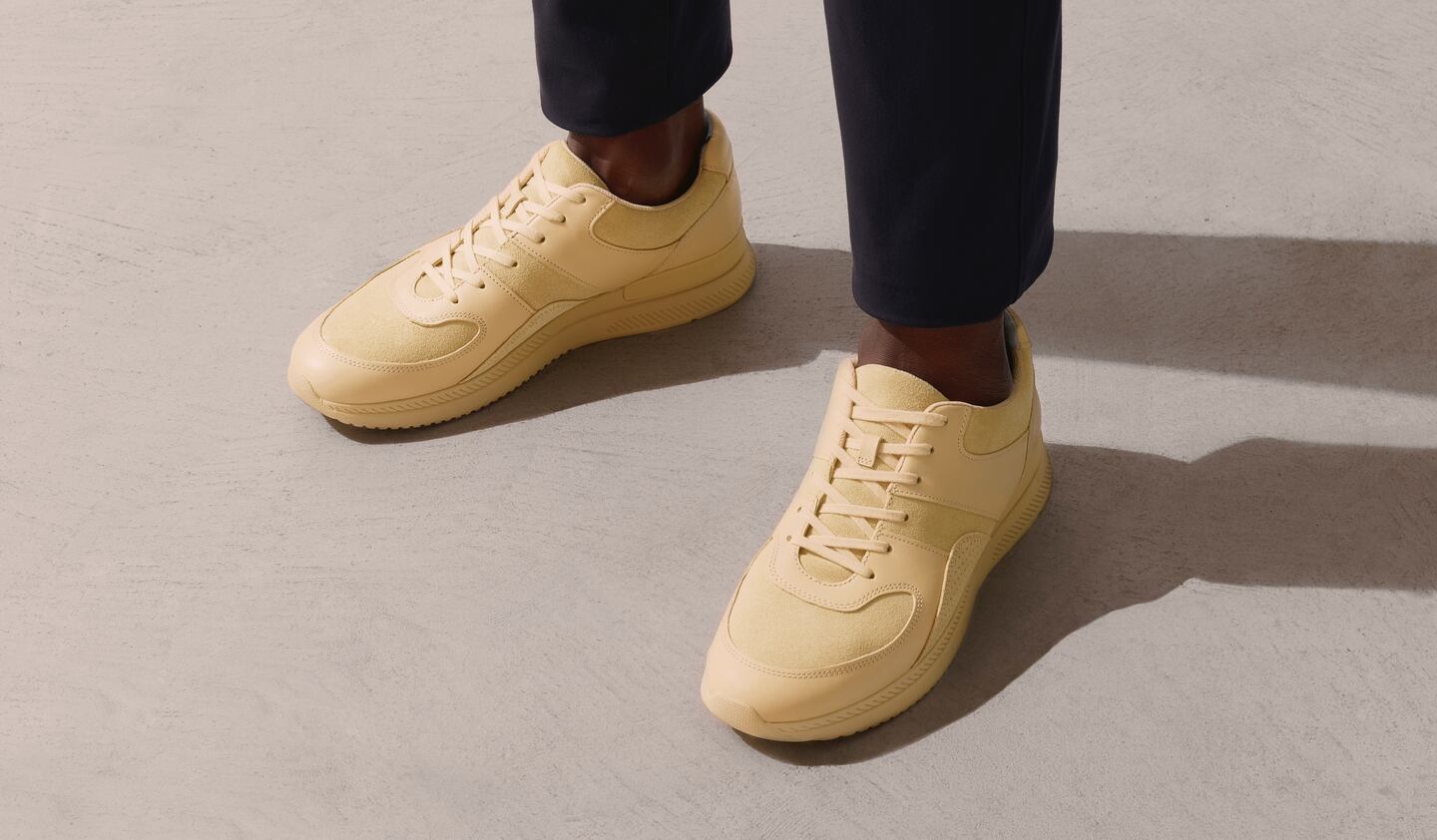
The Business of Fashion
Agenda-setting intelligence, analysis and advice for the global fashion community.

Agenda-setting intelligence, analysis and advice for the global fashion community.

SAN FRANCISCO, United States — Everlane, the clothing start-up that touts sustainable clothes and supply chain transparency, is starting its own sneaker label.
Called Tread, the brand aims to be better for the planet than the rest of the sneaker industry. The new kick comes with a sole largely free of unrecycled plastic, and leather made at a factory the company says has less environmental impact than your typical shoe manufacturer.
Everlane pledges that its shoes, which took two years to design, will be completely carbon neutral.
"There's a set of customers that want a great sneaker, but don't necessarily fit in," says Michael Preysman, the company's co-founder and chief executive. "The problem with sneaker culture is there's a lot of waste, and it's disposable."
ADVERTISEMENT
Preysman says the label’s expansion into sneakers “completes the American uniform,” adding to the two quintessential items it already sells: T-shirts and jeans. The first Tread shoe will be a $98 leather trainer that comes in seven understated colors like off-white, grey and navy. They will be available in Everlane’s stores and online on April 25.
The popular startup is entering a crowded field, one full of newcomers vying for a slice of the $20 billion US industry. Alternatives to traditional labels like Nike and Adidas have proliferated in recent years. The most prominent, Allbirds, with its comfy wool sneakers, is a Silicon Valley darling, as seen by its $77 million in venture capital. Rothy’s, which started with women’s flats, now sells a line of recycled slip-on sneakers. Greats sells simple sneakers, focused on long-lasting shoes and reducing their carbon footprint.
As Everlane executives see it, sneakers are the most egregious example of disposable fashion—where trends turn over so quickly that shoppers quickly trade up.
New sneaker styles are released regularly in what the industry calls “drops.” Kicks are publicized ahead of time, building desire in the run-up to the release date. Shoppers line up outside streetwear boutiques and company stores when a popular, limited-edition shoe hits.
Meanwhile, discarded shoes accumulate in landfills, a fact made by worse by the energy-intensive process needed to make them. To be fair, the secondary market for sneakers is especially robust, spawning specialized resale sites such as StockX, Grailed and GOAT. But it’s still small compared with what ends up in the garbage.
This cycle, Preysman says, is “a disaster for the planet.” Sneakers should be worn for years, not months, the chief executive says. Tread will eventually release new styles and colors, but not like the rapid-fire method used by the industry.
The corporate giants of the sneaker industry have made some progress on the earth consciousness front. Adidas has pledged to eliminate new plastic from its supply chain by 2024, and Nike says 75 percent of its shoes and apparel contain some kind of recycled material.
Tread shoes use leather from Vietnamese supplier Saigon TanTec, which has integrated natural lighting and solar energy into its production operations, using less electricity and fresh water than comparable factories. Laces and linings are made from recycled plastic instead of polyester. The soles, normally made entirely from plastic, are constructed from a blend of natural rubber and post-industrial recycled rubber, resulting in a 94.2 percent virgin-plastic free component.
ADVERTISEMENT
Preysman said it’s still not good enough. Tread will work toward eliminating all new plastic from its production process by 2021, he says.
“The unfortunate piece is we’re doing the best the industry allows right now,” said Preysman. “We’re waiting for the industry to get there. It is really, really challenging to find the right materials at the right cost.”
By Kim Bhasin; Editor: David Rovella.
From analysis of the global fashion and beauty industries to career and personal advice, BoF’s founder and CEO, Imran Amed, will be answering your questions on Sunday, February 18, 2024 during London Fashion Week.
The State of Fashion 2024 breaks down the 10 themes that will define the industry in the year ahead.
Imran Amed reviews the most important fashion stories of the year and shares his predictions on what this means for the industry in 2024.
After three days of inspiring talks, guests closed out BoF’s gathering for big thinkers with a black tie gala followed by an intimate performance from Rita Ora — guest starring Billy Porter.